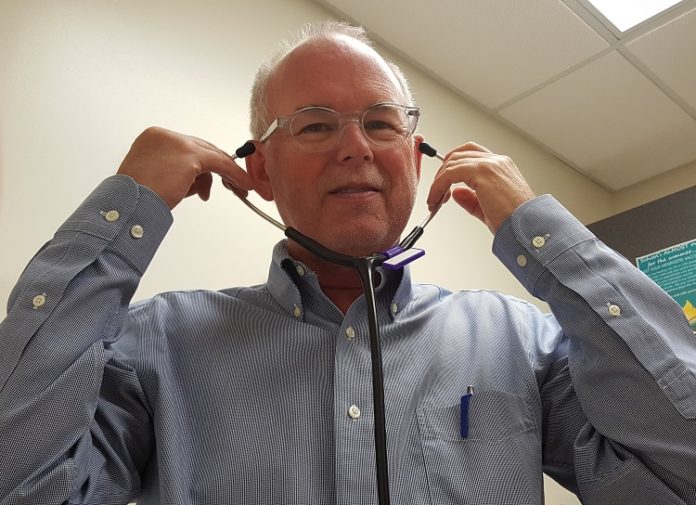
After 31 years of family practice in Perry, Dr. Kurt Klise will soon hang his shingle in Grimes at a new Mercy clinic.
“We’ve been talking the last year or so about downsizing and moving closer to Des Moines and commuting,” Klise said recently in one of the Mercy Family Care examination rooms in Perry. “Then some people at Mercy administration heard me talking about this, and a couple of weeks later they called and said, ‘Well, you know, we’re opening up this new clinic in Grimes. Would you think about relocating?’ and I thought, well, it seems like an opportunity to slow down.”
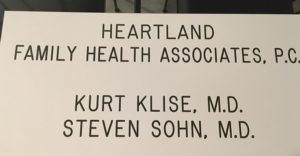
Klise opened his practice in Perry in 1986 with his clinic partner, Dr. Steven Sohn, and they called it the Heartland Family Health Associates. Klise said they have seen the medical profession evolve over the course of a generation.
“In the 31 years I’ve been here, there’s been some big changes,” he said. “When Steve and I came here, they had an ICU upstairs. They used to keep people with heart attacks in the hospital here. As soon as we came here, we shipped them all out so that they could have angioplasty and try to save their heart. The guys that were here before us, they were just putting them upstairs, monitoring them, giving them lidocaine if they had arrhythmias and then seeing how much heart they had left. When we came, we shipped all acute heart attacks out and got them down to the Iowa Heart Center, where they did emergency angiograms and angioplasty, put balloons in there and open things up so that you save heart muscle. That was a change right off the bat.”
Klise, a native of Topeka, Kan., earned a bachelor’s degree from Washburn University and took his M.D. degree at the University of Kansas School of Medicine. He and Sohn met at Broadlawns Medical Center in Des Moines, where both were in residency, and they bought the Perry practice of Dr. Robert Deranleau, who retired June 30, 1986.
“Bob hung around for a week,” Klise said. “I remember hearing somebody say, ‘Oh, those guys have him cooped up in the back and won’t let him see patients.’ But he wanted to retire. He really wanted to retire. So he retired, and we took over his practice.”
Julie Klise, the doctor’s wife, said she is pleased to see her husband now slacken his pace a bit in turn.
“He put his heart and soul into his Perry practice and patients,” Julie Klise said. “That is the most difficult part of slowing down for him. He loved every minute of caring for his patients. That was the best part. He will truly miss them. It is now time for him to care for himself with a bit kinder schedule.”
But Dr. Klise is quick to point out that he is not retiring.
“I’ll be full-time” at the Grimes clinic, he said, “but I’m going to work a lot less than I work here, as it turns out, because I won’t be clinic director. I won’t be hospital chief of staff. I won’t be county medical examiner. There’s a lot of hats that I’m getting rid of.”
Klise reflected on the changes in medicine and its practice over three decades, particularly the deepening complexity of the field and the growth of specialization and subspecialization.
“Ideally, you would be able to see your doctor when you’re in the hospital,” he said, “but as it turns out, hospital medicine has evolved. It’s more complicated. It’s just harder to keep more complicated cases here (at DCH) because when you’re here, I’m your primary care provider. I’m your cardiologist. I’m your nephrologist. I’m your neurologist. I’m everything. We don’t have anybody coming here to do all those things. So if you are sicker, and you really deserve to be seen by those specialists, then you need to be in Des Moines because otherwise you’re not going to have the advantage of their expertise while you’re hospitalized. And that’s the limitation of a smaller hospital. The days of Dr. Deranleau seeing everybody, those days are past just based upon the complexity.”
Just as doctoring has changed in 31 years, so have doctors. Klise can produce a litany of doctors who have passed through his clinic — “There were six or seven practitioners in Perry when we started, but within about three years of our coming here, we were down to the two of us and Dr. Beatty for one year,” followed by Dr. Bill Durbin, Dr. Jeff Allyn, Dr. Hallie Stewart, Dr. Michael Sergeant, Dr. Steve Humphrey and a few more we might have missed.
The doctorly character has also changed, he said.
“When you look at newer physicians,” Klise said, “they’re more tuned into life-work balance than we were. That’s for sure. So they’re only willing to do this much rather than, you know, when we started out, we tried to do it all. When people interview now, they’re more concerned with benefits and time off than with what they can do. It’s just a different world, millennials and all that.”
Just as different types of people are drawn to different careers, so within the medical profession, different specialisms attract different types.
As family-practice doctors, “we see everybody, and we always have,” Klise said. “We’ve never looked at people’s wallets before we see them. But if you go see a specialist, if you call an orthopedic surgeon, for instance, before you go to their office, they want $250 up front if you don’t have insurance. You find lots of physicians are hardcore Republicans, but what you also find is most family practitioners, most pediatricians — most of them are Democrats. Different specialties have different political affiliations, for the most part, but as family practitioners we see people. We’re here to take care of people. We need help from the government.”
Klise said he likes the recent emergence of a more patient-centered method of treatment, in which authority and decision making reside with the patient.
“Just because I think you need something doesn’t mean you need it because you’re the boss of you,” he said. “It’s supposed to be this give and take of ‘This is what I think and why I think this’ but if you don’t agree with me, and you don’t want to do it, even if it’s something that might shorten your life, you get to make that decision. It’s not like the days of the ’50s with MDeity. Probably when Dr. Deranleau said, ‘This is what I’m going to do, and this is what you’re going to do,’ and you didn’t talk about it. People my age, at least, we were never comfortable with that because everybody is on a different path. Everybody is on a different journey, and you get to choose what that is. We’re just here to try to facilitate things and give you some advice.”
The Klises’ journey has recently taken them to a new home in West Des Moines.
“We live 10 minutes from both of our kids,” Julie Klise said with obvious relish. “Kurt was very good to us as he spent all of his free time with his family. Selfishly, I’m looking forward to spending more time with him.”





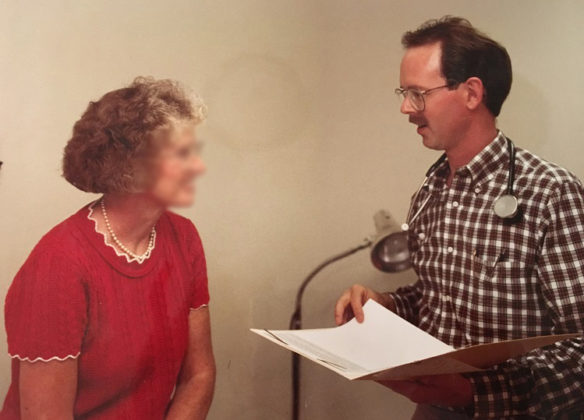
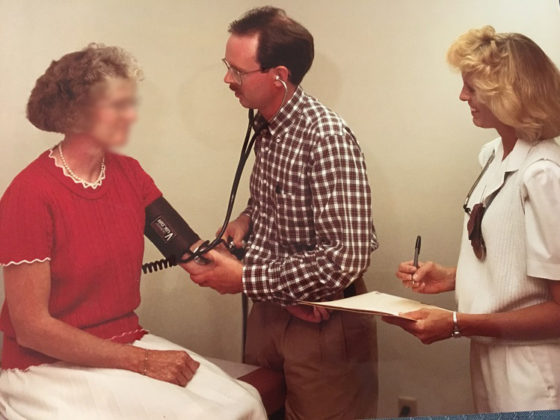
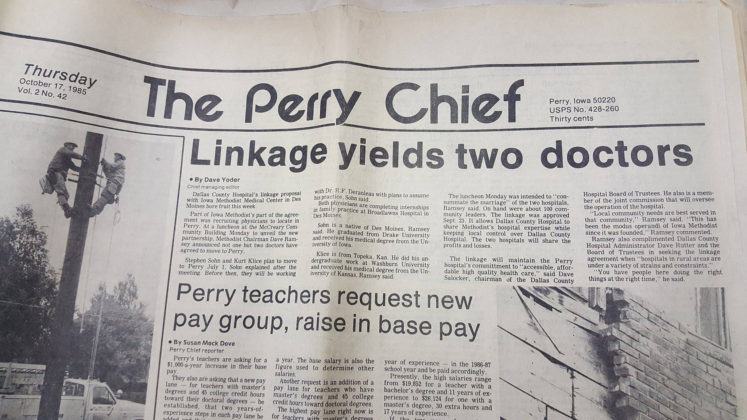
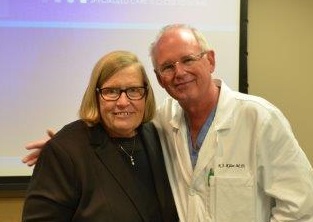




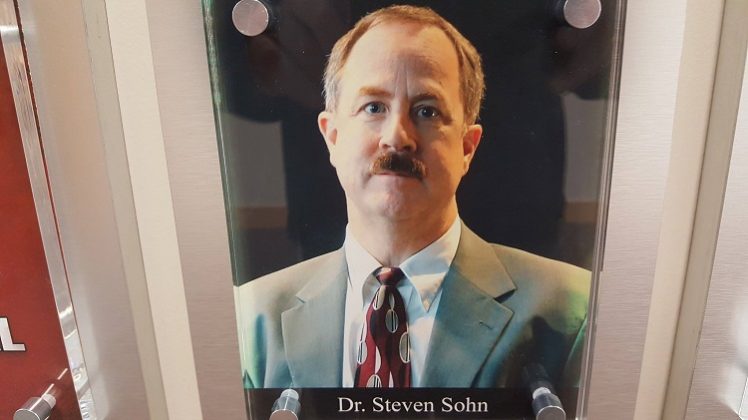
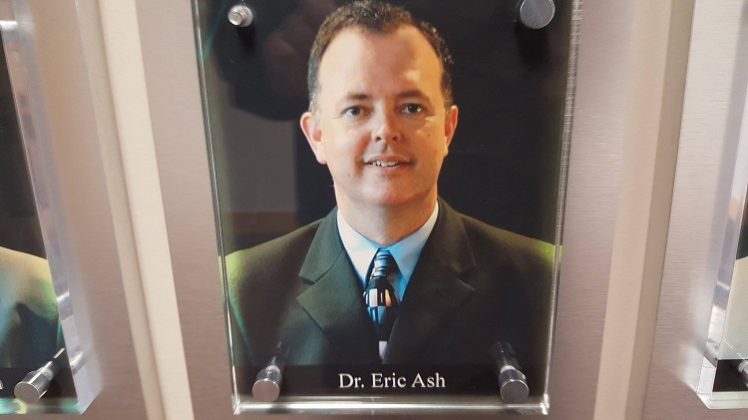

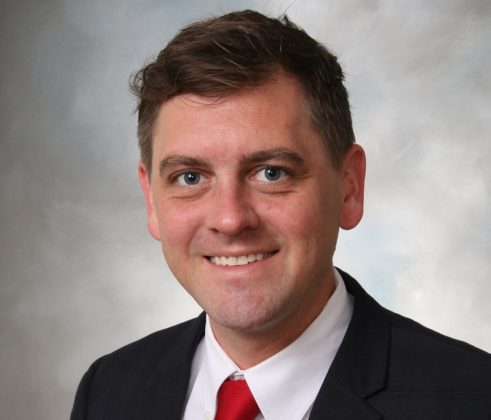







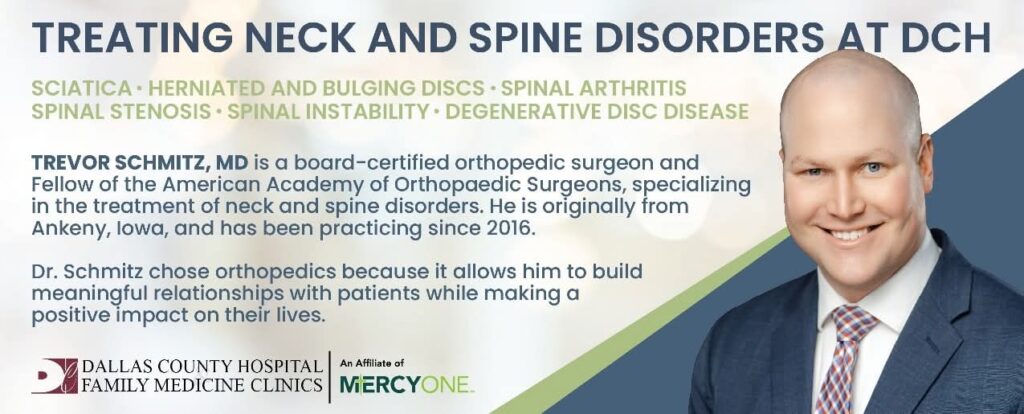
Dr. Kurt Klise has been a friend and confidant for several years. I will miss him but wish him and his family the very best.
Dr. Klise, I want to thank you for the fantastic care you gave to my parents, Joe and Freda Archer. I wish you the very best in your new endeavor!